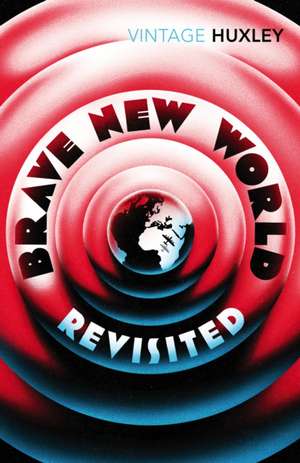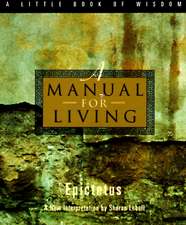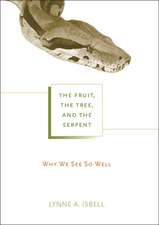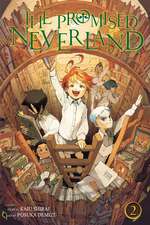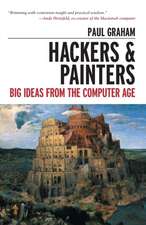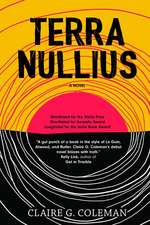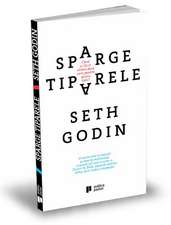Brave New World Revisited: Vintage Huxley
Autor Aldous Huxleyen Limba Engleză Paperback – 2 sep 2004
In his 1932 classic dystopian novel, Brave New World, Aldous Huxley depicted a future society in thrall to science and regulated by sophisticated methods of social control. Nearly thirty years later in Brave New World Revisited, Huxley checked the progress of his prophecies against reality and argued that many of his fictional fantasies had grown uncomfortably close to the truth. Brave New World Revisited includes Huxley's views on overpopulation, propaganda, advertising and government control, and is an urgent and powerful appeal for the defence of individualism still alarmingly relevant today.
| Toate formatele și edițiile | Preț | Express |
|---|---|---|
| Paperback (2) | 51.50 lei 21-33 zile | +16.29 lei 6-12 zile |
| Random House – 2 sep 2004 | 51.50 lei 21-33 zile | +16.29 lei 6-12 zile |
| HarperCollins Publishers – 4 sep 2006 | 85.72 lei 3-5 săpt. |
Preț: 51.50 lei
Preț vechi: 62.48 lei
-18% Nou
9.85€ • 10.29$ • 8.16£
Carte disponibilă
Livrare economică 14-26 martie
Livrare express 27 februarie-05 martie pentru 26.28 lei
Specificații
ISBN-10: 0099458233
Pagini: 176
Ilustrații: Illustrations
Dimensiuni: 130 x 197 x 15 mm
Greutate: 0.13 kg
Ediția:New edition
Editura: Random House
Seria Vintage Huxley
Locul publicării:United Kingdom
Notă biografică
Aldous Huxley was born on 26 July 1894 near Godalming, Surrey. He began writing poetry and short stories in his early 20s, but it was his first novel, Crome Yellow (1921), which established his literary reputation. This was swiftly followed by Antic Hay (1923), Those Barren Leaves (1925) and Point Counter Point (1928) ¿ bright, brilliant satires in which Huxley wittily but ruthlessly passed judgement on the shortcomings of contemporary society. For most of the 1920s Huxley lived in Italy and an account of his experiences there can be found in Along the Road (1925). The great novels of ideas, including his most famous work Brave New World (published in 1932, this warned against the dehumanising aspects of scientific and material 'progress') and the pacifist novel Eyeless in Gaza (1936) were accompanied by a series of wise and brilliant essays, collected in volume form under titles such as Music at Night (1931) and Ends and Means (1937). In 1937, at the height of his fame, Huxley left Europe to live in California, working for a time as a screenwriter in Hollywood. As the West braced itself for war, Huxley came increasingly to believe that the key to solving the world's problems lay in changing the individual through mystical enlightenment. The exploration of the inner life through mysticism and hallucinogenic drugs was to dominate his work for the rest of his life. His beliefs found expression in both fiction (Time Must Have a Stop,1944, and Island, 1962) and non-fiction (The Perennial Philosophy, 1945; Grey Eminence, 1941; and the account of his first mescaline experience, The Doors of Perception, 1954). Huxley died in California on 22 November 1963.
Textul de pe ultima copertă
Recenzii
"A message which, enforced by Mr. Huxley's seriousness and clear dialectic on dealing with social problems, we cannot ignore. . . . The last pages carry a somewhat tragic node about his misgivings whether man himself wishes to be saved." — Time and Tide (London)
"A thought jabbing, terrifying book." — Chicago Tribune
"Brilliantly written.... Should appeal to readers of all breeds." — Kirkus Review
